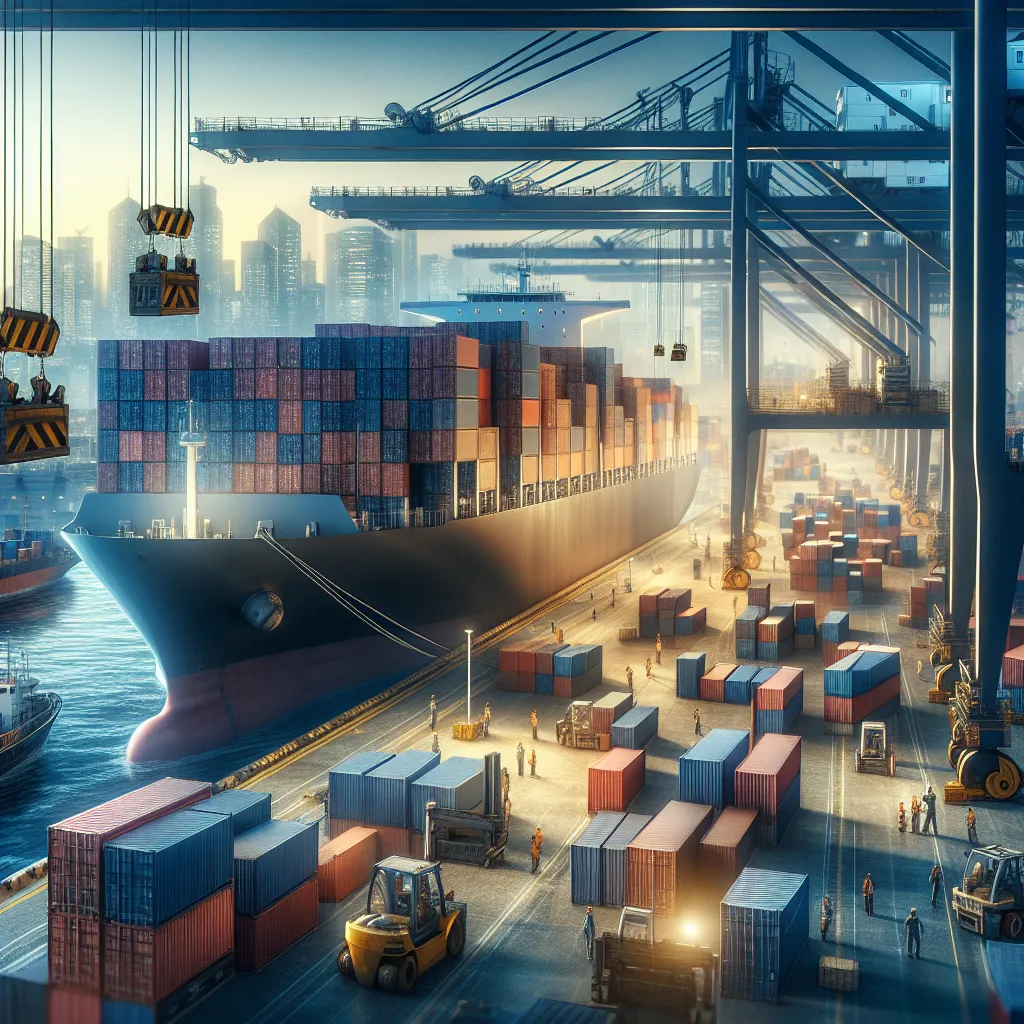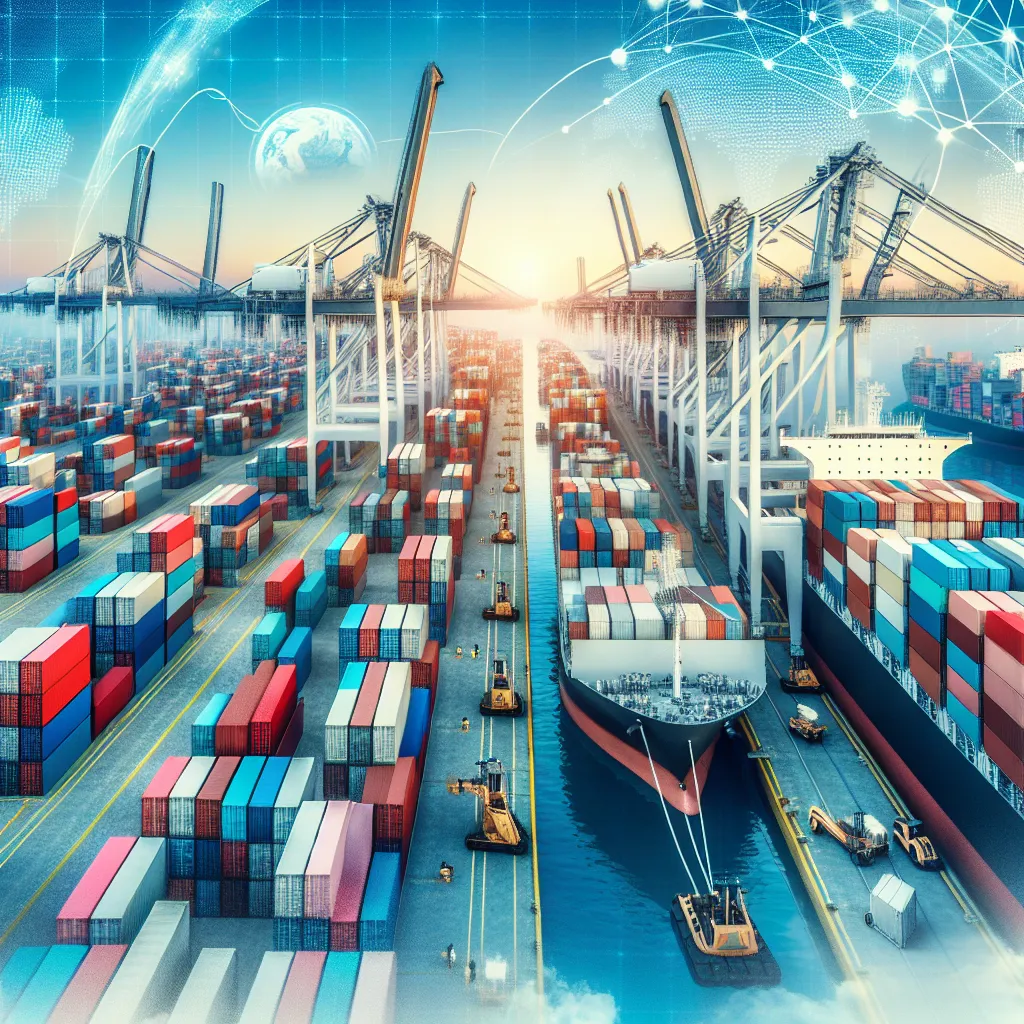The Role of Forwarding Agents in International Trade
Forwarding agents play a crucial role in facilitating international trade by managing the complex logistics of moving goods across borders. These agents act as intermediaries between exporters, importers, and various transportation services, ensuring that goods are efficiently and securely transported from the point of origin to the final destination. The importance of forwarding agents in international trade cannot be overstated, as they possess the expertise and resources to navigate the intricacies of global supply chains.
One key aspect of the forwarding agent’s role is to handle the necessary documentation and customs clearance procedures, which vary significantly from one country to another. By staying up-to-date with regulations and requirements, forwarding agents help businesses avoid costly delays and compliance issues. Additionally, they leverage their networks and relationships with carriers and shipping lines to negotiate competitive rates and secure optimal shipping routes for their clients.
Moreover, forwarding agents provide valuable support in managing risk and mitigating potential challenges that may arise during transit. From coordinating multi-modal transportation to offering cargo insurance options, these professionals work to ensure that shipments are protected and monitored throughout the journey. Their ability to troubleshoot and address unexpected issues adds a layer of security for businesses engaged in international trade.
In essence, forwarding agents serve as indispensable partners for companies looking to expand their global reach. By tapping into their knowledge and capabilities, businesses can streamline their supply chain operations, minimize risks, and ultimately, enhance their competitiveness in the international market.
Streamlining Global Logistics: The Critical Role of Freight Forwarding
Streamlining global logistics is essential in today’s interconnected world of international trade. The critical role of freight forwarding cannot be overstated in ensuring the smooth and efficient movement of goods across borders. Freight forwarders act as crucial intermediaries, coordinating the complex process of shipping goods from one destination to another. By consolidating shipments, managing documentation, and navigating the intricacies of customs regulations, freight forwarders play a pivotal role in optimizing the supply chain.
Integral to the process is the expertise of freight forwarders in selecting the most cost-effective and reliable transportation methods, be it by air, sea, or land. This careful consideration is vital in minimizing transit times and reducing the risk of delays or disruptions. Additionally, freight forwarders utilize their extensive network of carriers and agents to negotiate competitive rates and secure the best possible terms for their clients. This ability to leverage industry connections is instrumental in driving efficiency and controlling costs within the international trade landscape.
Furthermore, the comprehensive services offered by freight forwarders extend beyond just the physical transportation of goods. They also provide crucial support in managing warehousing, inventory, and distribution, thereby streamlining the entire logistics process. By integrating these services with advanced technological solutions, such as real-time tracking and inventory management systems, freight forwarders ensure transparency and visibility throughout the supply chain, yielding enhanced efficiency and customer satisfaction.
In conclusion, freight forwarding stands as a linchpin in the realm of global logistics, facilitating the seamless movement of goods across borders and enabling businesses to optimize their international trade operations. By harnessing the expertise of freight forwarders, companies can navigate the complexities of international shipping with confidence, knowing that their logistical needs are in capable hands.
Navigating International Trade: The Vital Role of Forwarders
Understanding the importance of forwarding in international trade is crucial for businesses looking to navigate the complexities of global commerce. Forwarders play a vital role in facilitating the movement of goods across international borders, serving as invaluable intermediaries between exporters, importers, carriers, and customs authorities.
One of the key aspects of forwarding in international trade is the ability to navigate the intricate web of regulations and requirements that vary from country to country. Forwarders possess the expertise to ensure compliance with import and export regulations, documentation, and customs clearance processes, thereby minimizing the risk of delays and penalties.
Additionally, forwarders leverage their extensive network of global partners and carriers to secure optimal shipping routes, modes of transportation, and competitive freight rates. By coordinating the logistics of international shipments, forwarders help businesses streamline their supply chain operations and optimize overall efficiency.
Furthermore, forwarders play a pivotal role in managing the complexities of cargo insurance, risk management, and handling any unforeseen issues that may arise during the transportation process. Their proactive approach to problem-solving contributes to the seamless flow of goods and mitigates potential disruptions.
In conclusion, the significance of forwarders in international trade cannot be overstated. Their ability to navigate the multifaceted landscape of global logistics, compliance, and risk management is essential for businesses seeking to expand their presence in the international market. By partnering with experienced forwarders, companies can enhance their competitive edge and ensure the smooth execution of their international trade operations.




